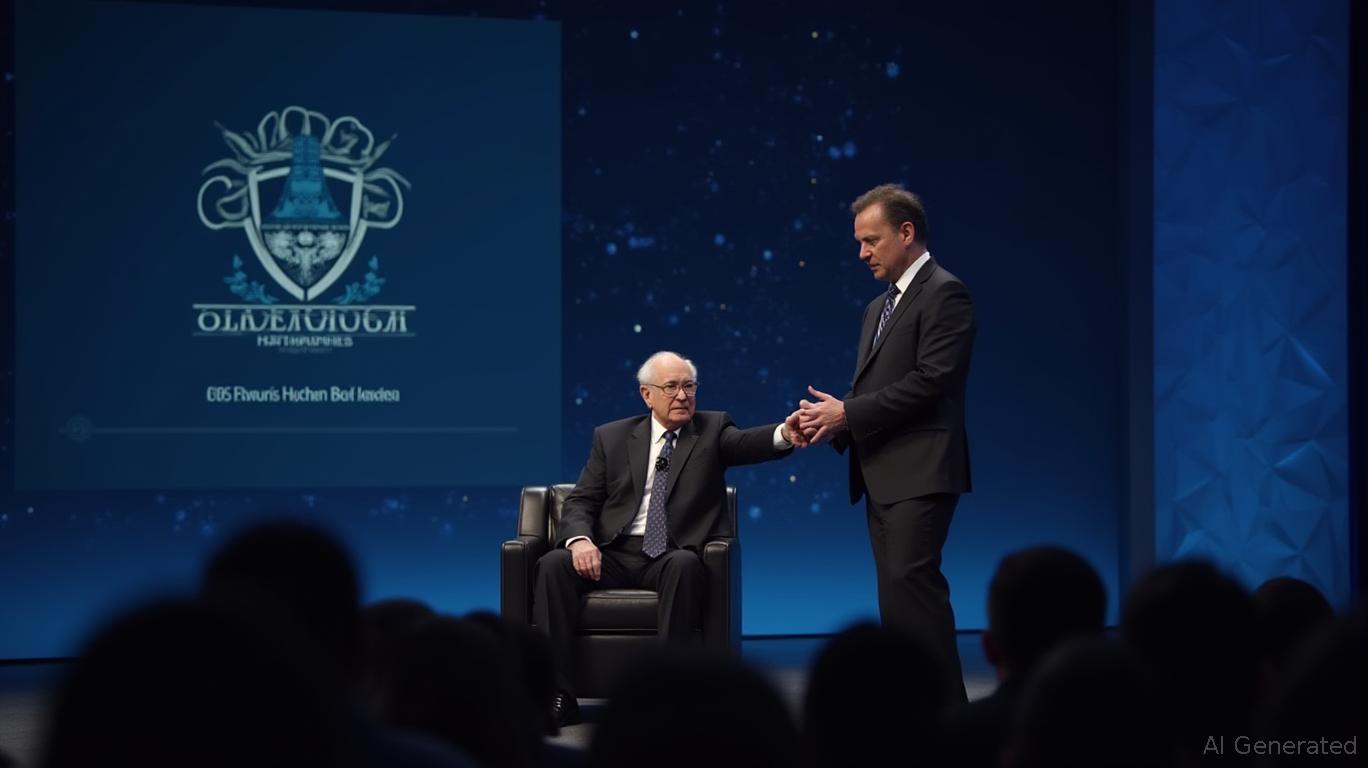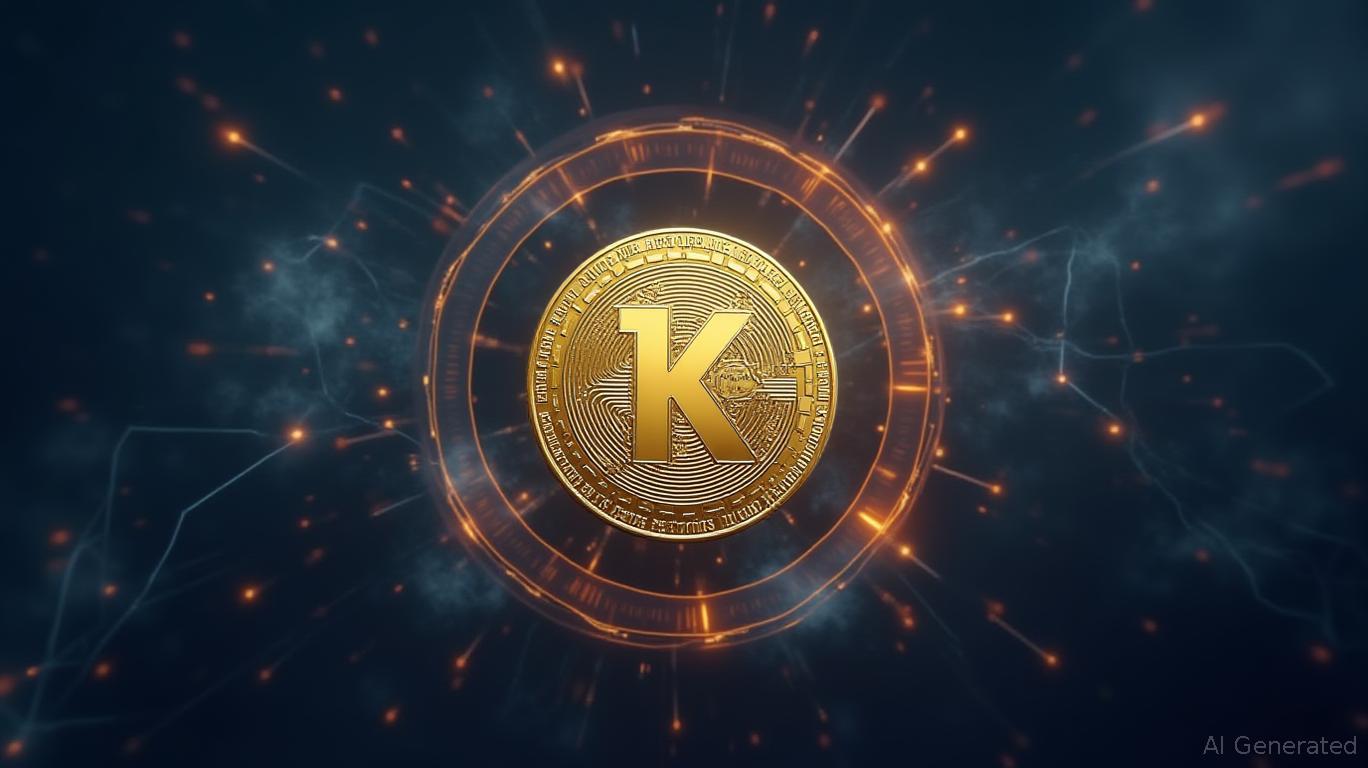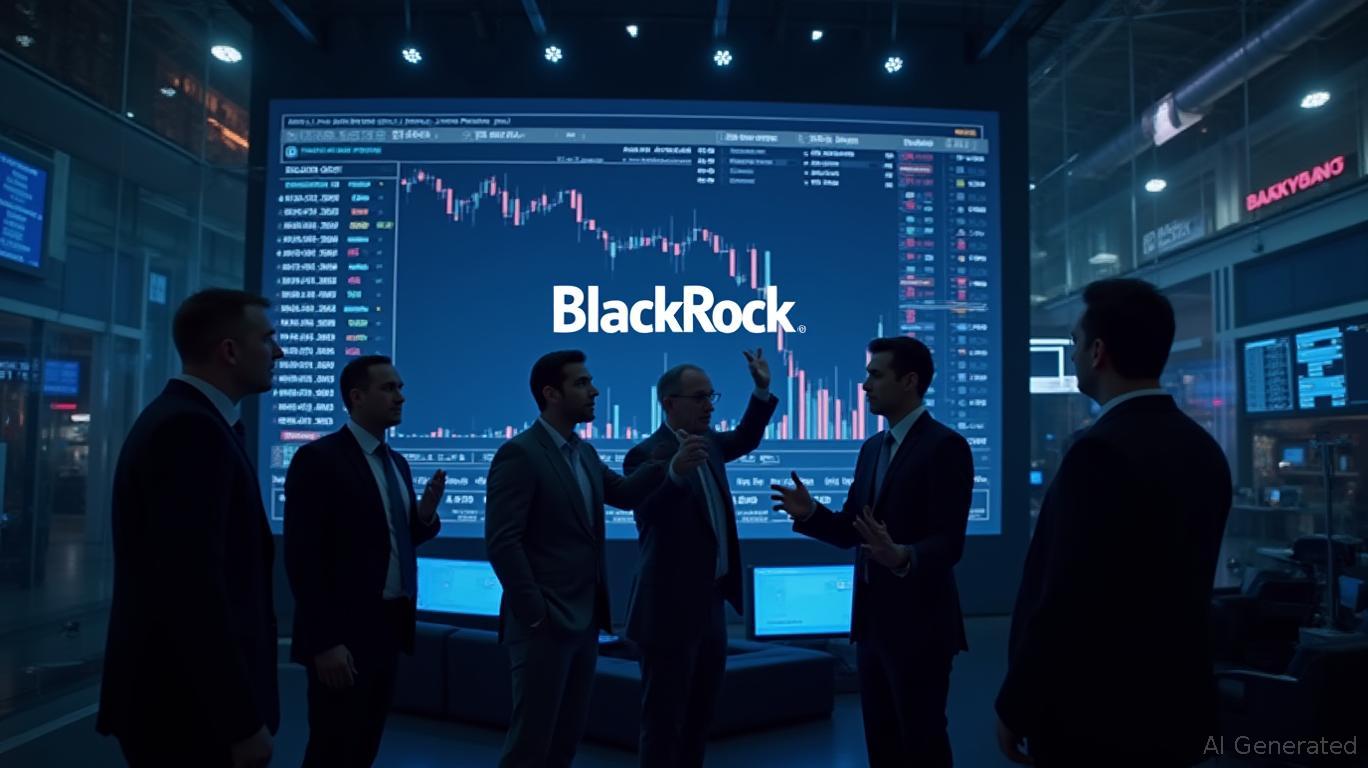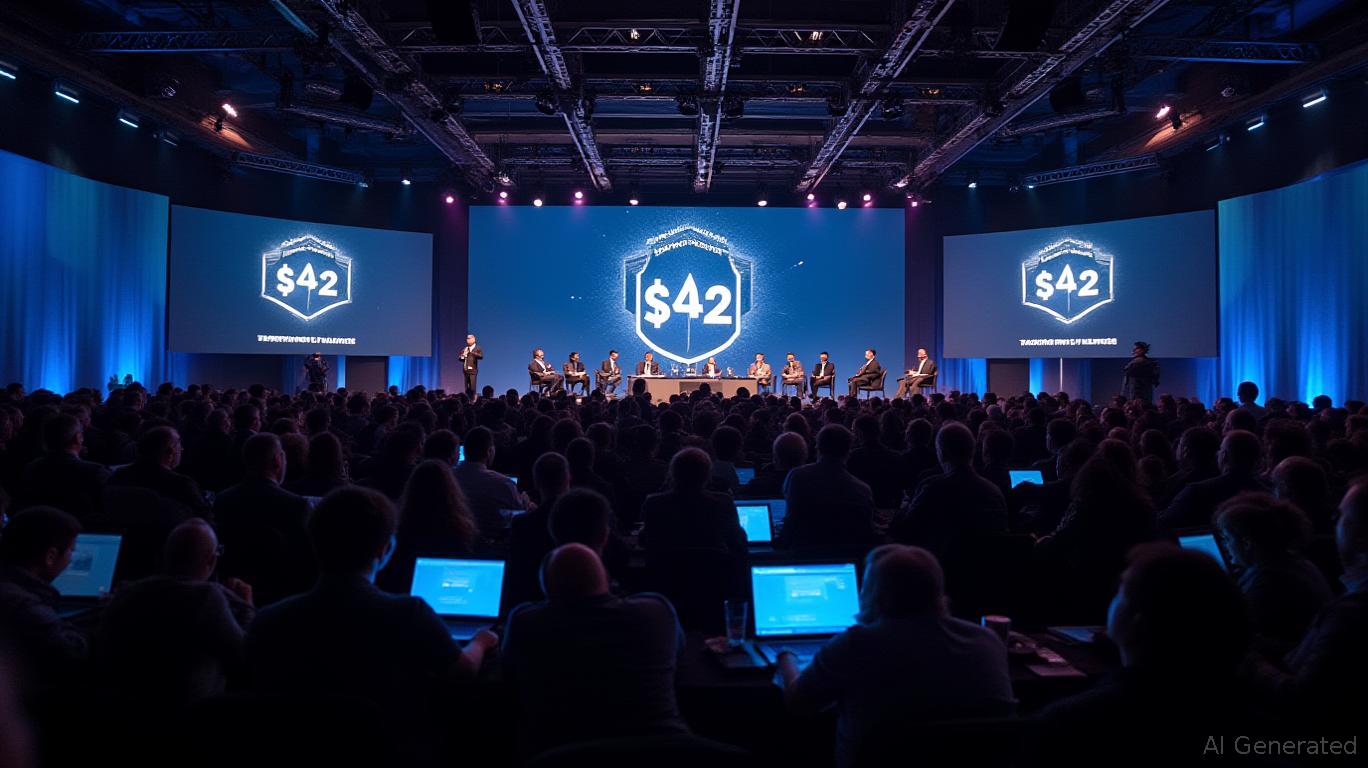Berkshire’s Cash Reserves Increase While Shares Decline: Could the Incoming CEO Initiate a New Strategy?
- Berkshire Hathaway has net sold stocks for three years, holding $381.67B cash as Buffett steps down in 2025. - Q3 operating profit rose 34% to $13.49B, driven by insurance gains, but stock lagged S&P 500 by 12%. - Greg Abel's leadership transition faces pressure to diversify capital use amid $381B cash hoard and no buybacks since 2020. - Buffett's "cash-equivalent" philosophy contrasts with market demands for action as the "Buffett premium" erodes.
Renowned investor Warren Buffett has now spent three straight years selling more stocks than buying at Berkshire Hathaway, highlighting a significant change in the conglomerate’s strategy as it prepares for a leadership transition. As of September 30, 2025, Berkshire’s cash holdings soared to an unprecedented $381.67 billion, according to
Berkshire’s third-quarter earnings, announced on November 1, showed a 34% increase in operating profit from the previous year, reaching $13.49 billion—a result Seeking Alpha attributed to strong insurance underwriting. Profits from this segment jumped to $2.37 billion, thanks to fewer major losses and positive claim trends. Nevertheless, Berkshire continued to sell more stocks than it bought, with net sales of $6 billion in Q3, marking 12 straight quarters of net selling, as Morningstar also noted. Analysts say Buffett’s focus on liquidity reflects caution in volatile markets, though some critics, according to Morningstar , believe it signals a shortage of appealing investments.

Berkshire has not repurchased any shares for five consecutive quarters, intensifying debate over its approach to capital management. Historically, Buffett has preferred investing in high-quality businesses, but the current cash reserve—now $381 billion, up from $344 billion in the previous quarter, as Morningstar observed—suggests a more cautious, wait-and-see attitude. This has drawn attention as Berkshire’s stock has only risen 5% this year, compared to a 17% gain for the S&P 500, a gap MarketWatch highlighted. Edward Jones analyst James Shanahan remarked that Buffett’s core belief remains: “We will never prefer ownership of cash-equivalent assets over the ownership of good businesses,” even as cash accumulates, Morningstar added.
The upcoming leadership change is a major factor. Abel, the incoming CEO, has indicated he will maintain Berkshire’s current operating model but could face calls to diversify how capital is used. The company has already agreed to spend $9.7 billion to buy Occidental Petroleum’s OxyChem unit, according to Financial Modeling Prep—a deal Buffett called a template for investing in expensive markets, as Seeking Alpha reported. With Abel set to write Berkshire’s annual letter for the first time in 2026, Seeking Alpha noted that investors will be watching for any strategic shifts. “Greg doesn’t know anything about this that I’m telling you right now,” Buffett joked during his May announcement, as USA Today recounted, hinting at the uncertainty ahead.
Berkshire’s financial strength remains remarkable. Its cash reserves now surpass the market value of most Fortune 500 firms, giving the company flexibility for options like dividends—which haven’t been paid since 1967—acquisitions, or buybacks. Still, with Abel’s active management style and Buffett’s ongoing role as chairman, the future direction is not yet clear. “The final word will be what Greg said,” Buffett stressed, according to USA Today , though his continued presence may help ensure stability.
As Berkshire moves through this period of change, attention will turn to how Abel manages the balance between honoring Buffett’s legacy and pursuing new opportunities. For now, the record cash levels and continued net stock sales point to a company choosing patience over immediate action—a strategy that has benefited Berkshire in the past but could challenge investor faith as the “Buffett premium” diminishes, MarketWatch warned.
Disclaimer: The content of this article solely reflects the author's opinion and does not represent the platform in any capacity. This article is not intended to serve as a reference for making investment decisions.
You may also like
Regulatory Concerns Intensify with the Introduction of South Korea's KRW1 Stablecoin into Arc's International Network
- Circle's Arc blockchain, designed as an "economic operating system," offers sub-second finality and USDC-based fees to streamline global finance. - South Korea's BDACS plans to deploy KRW1, a won-pegged stablecoin on Arc's testnet, bridging Korean markets to global stablecoin networks. - Arc's testnet has attracted 100+ institutions including BlackRock and Visa, aiming to redefine cross-border payments and asset tokenization. - Regulatory debates persist as South Korea's Bank of Korea proposes restrictin

Bitcoin News Update: BlackRock's ETF Supremacy Raises Concerns for Altcoin Futures
- BlackRock's iShares Bitcoin Trust ETF dominated 2025 with $28.1B inflows, overshadowing $1.27B outflows from other spot Bitcoin ETFs. - Altcoin ETFs face uncertainty without BlackRock's support, despite JPMorgan/Bitget's $3–8B inflow projections for Solana and XRP. - DeFi innovation advanced via Avalanche's BTC.b bridging, while Blazpay and BullZilla presales attracted $1M+ in speculative capital. - Bitcoin traded near $110,000 amid $488M ETF outflows, with Saylor forecasting $150,000 by year-end driven

Romania Prohibits Unregulated Prediction Markets, Classifying Them as Gambling
- Romania's ONJN banned unlicensed prediction market Polymarket, classifying its user-driven bets on real-world events as gambling requiring a license. - Regulators warned that treating counterparty betting as "trading" creates legal risks for player protection, AML compliance, and state revenue collection. - The crackdown follows $600M+ in wagers on Romanian elections and joins bans in France, Belgium, and the U.S., where Polymarket faces EU licensing hurdles. - Despite securing a CFTC-licensed exchange a

Monero Faces a $342 Test: The Assurance of Privacy Against Widespread Doubt
- Monero (XMR) trades near $342, with traders monitoring key support/resistance levels amid mixed sentiment. - Analysts highlight $342 as a critical threshold; breakouts could drive bullish momentum, while dips below $325 risk corrections. - Privacy coin faces challenges from regulatory uncertainty and cautious institutional adoption despite growing DeFi use cases. - Broader crypto market shows mixed trends, with NFT sales declining and tech stocks like Nvidia surging.
